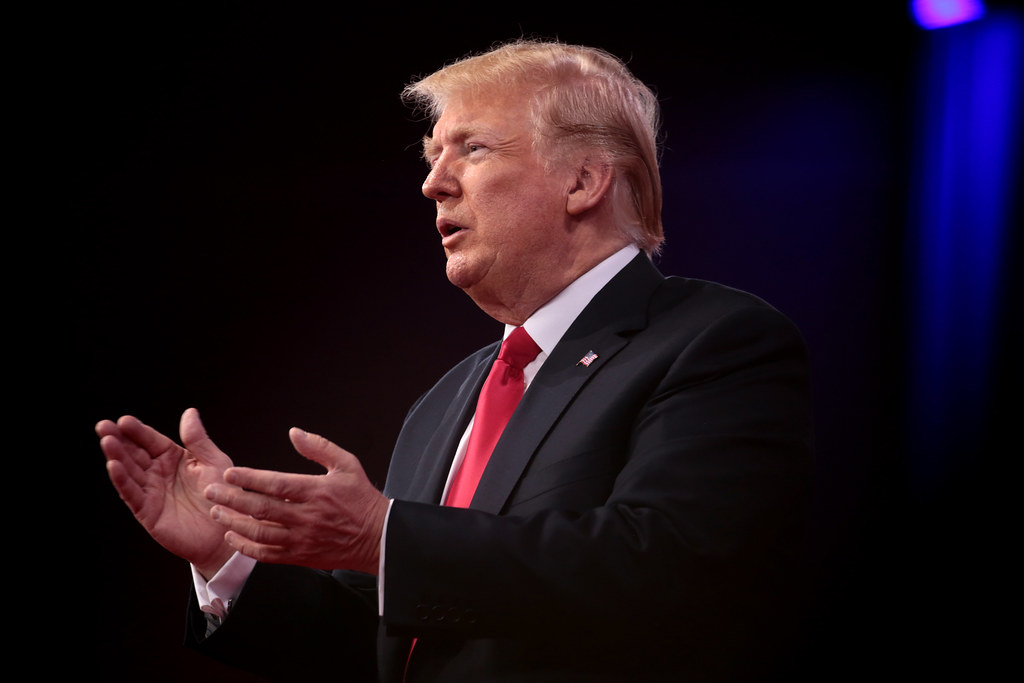
During a high-profile speech at the Bitcoin 2024 conference in Nashville, Tennessee, on July 27, former President Donald Trump laid out his vision for the future of Bitcoin in the United States. Trump’s address highlighted his intention to establish the US as the global capital of cryptocurrency, but his comments have sparked discussions and concerns among cryptocurrency advocates.
Trump’s primary promise was that the US government would not sell any of its current Bitcoin holdings if he is reelected. As he stated:
“For too long, our government has violated a cardinal rule that every Bitcoiner knows by heart: never sell your Bitcoin. If I am elected, it will be the policy of my administration for the United States of America to keep 100% of all the Bitcoin the US government currently holds or acquires.”
Bitcoin Holdings and Value
As of April 2024, the US government is reported to hold 212,847 Bitcoin, valued at approximately $14.4 billion as of July 28. This stockpile includes assets seized from the Bitfinex cryptocurrency exchange hack in 2022. The seizure involved about 94,636 BTC, which were stolen by hackers in 2016. If these coins were excluded from the total, the remaining Bitcoin holdings would amount to roughly $8 billion.
The potential impact of Trump’s pledge raises several legal and practical questions:
- Asset Forfeiture Laws: Federal asset forfeiture laws do not typically prioritize compensating victims immediately. Ongoing investigations and legal proceedings may affect decisions regarding the return of seized assets. If the stolen Bitcoin is linked to other criminal activities, the Justice Department may need to address additional legal complexities before returning funds.
- Legal Precedents: There is limited legal precedent for returning aggregated stolen funds to individual victims. A court might order the return of assets through a neutral third-party custodian, but this remains speculative until further legal actions are taken.
- Trump’s Policy vs. Legislation: Trump’s statement indicates a policy of retaining Bitcoin rather than enacting legislation or executive orders to prevent sales. This suggests some flexibility in policy implementation, depending on future developments and legal constraints.
Ross Ulbricht and Bitcoin Recovery
The situation is somewhat clearer regarding the Bitcoin seized from Silk Road founder Ross Ulbricht. Ulbricht was convicted in 2015 for crimes related to drug trafficking, hacking, and money laundering. He is currently serving a double life sentence plus 40 years.
In 2020, the US government seized 50,591 BTC allegedly linked to Ulbricht’s activities. As of July 28, these assets are valued at approximately $3.4 billion. Trump’s speech included a promise to commute Ulbricht’s sentence if reelected.
Commutation vs. Pardon
- Commutation: This would reduce Ulbricht’s sentence but leave his conviction intact. The seized Bitcoin would remain with the US government, as commutation does not affect the legal status of the assets.
- Pardon: A pardon, proposed by independent presidential candidate Robert F. Kennedy Jr., would absolve Ulbricht of his crimes and potentially allow for recovery of the seized Bitcoin. However, Ulbricht reportedly signed away his claim to these funds in 2022 as part of a deal to settle his $183 million restitution debt, likely precluding any future claim.
| Aspect | Details |
|---|---|
| Trump’s Promise | Retain all US government-held Bitcoin if reelected |
| Total Bitcoin Holdings | 212,847 BTC ($14.4 billion as of July 28) |
| Seized Bitcoin from Bitfinex | 94,636 BTC ($6.7 billion as of July 28) |
| Remaining Bitcoin Value | Approx. $8 billion if Bitfinex coins excluded |
| Ulbricht’s Seized Bitcoin | 50,591 BTC ($3.4 billion as of July 28) |
| Trump’s Proposal on Ulbricht | Commutation of sentence, not a pardon |
| Kennedy’s Proposal | Pardon to allow for legal recovery of Bitcoin |
Trump’s pledge to keep the US government’s Bitcoin holdings intact reflects his broader ambition to position the US as a leader in the crypto space. However, the complexities surrounding seized assets and legal precedents raise questions about how this promise will play out in practice. The situation with Ross Ulbricht adds another layer of complexity, highlighting the challenges of integrating cryptocurrency policy with legal frameworks.
Featured image credit: Gage Skidmore via Flickr
Follow us for more breaking news on DMR
